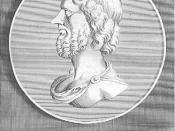Ethical Theories - Ethical Hedonism
The name given to the group of ethical systems that hold, with various modifications, that feelings of pleasure or happiness are the highest and final aim of conduct; that, consequently those actions which increase the sum of pleasure are thereby constituted right, and, conversely, what increases pain is wrong. Ethical Hedonism is usually associated with the Ancient Greek philosopher Epicurus who taught people that our goal in life should be to minimize pain and maximize pleasure (Internet Encyclopedia of Philosophy, 2001). Contemporary Hedonists are sometimes classed into egoistic and altruistic. The classification, however, is not quite satisfactory when applied to writers; for many Hedonists combine the egoistic with the altruistic principle. The distinction, however, may conveniently be accepted with regard to the principles that underlie the various forms of the doctrine. The statement that happiness is the end of conduct at once raises the question: whose happiness? To this egoism answers: the happiness of the agent; while altruistic Hedonism replies: the happiness of all concerned, or, to use a phrase that is classic in the literature of this school, "the greatest happiness of the greatest number" (Catholic Encyclopedia, 2003 Online Edition)
Resources:
http://www.utm.edu/research/iep/h/hedonism.htm - The Internet Encyclopedia of Philosophy
http://www.newadvent.org/cathen/07187a.htm - Catholic Encyclopedia Online Edition


